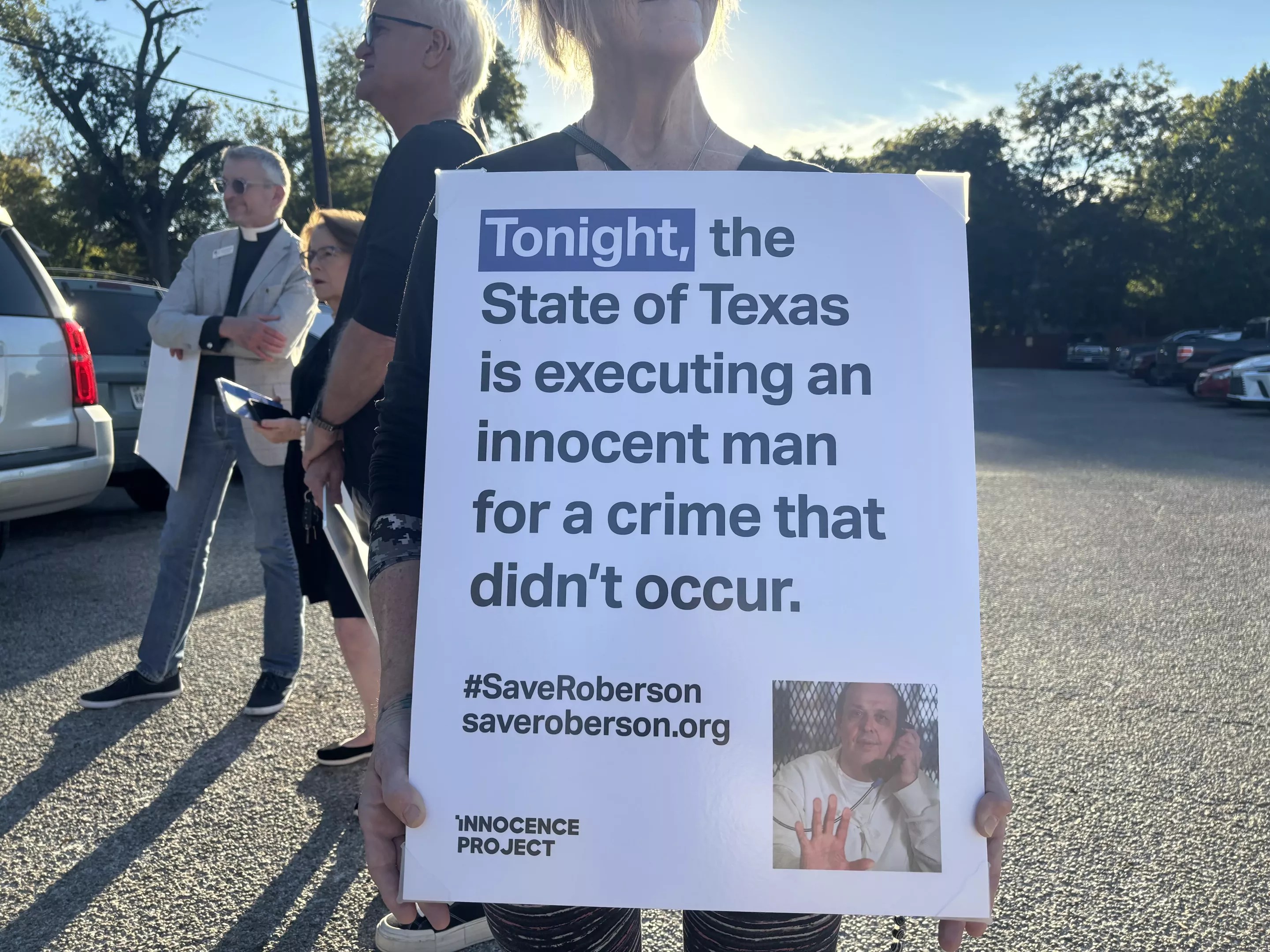
Jordan Maddox

Audio By Carbonatix
The Texas Supreme Court has ruled that a state House committee violated the state’s constitution when it issued a last-ditch subpoena for death row inmate Robert Roberson to testify at a committee meeting after his scheduled execution date.
The subpoena from the House Committee on Criminal Jurisprudence, which led to a court order staying Roberson’s execution on Oct. 17, violated the state constitution’s separation of powers clause by interfering with a court’s decision to issue a death warrant and intruding on the governor’s sole power to grant clemency. While the Legislature has broad authority to subpoena witnesses and collect evidence, the Supreme Court noted that the House committee had plenty of time well before the day of his scheduled execution to seek Roberson’s testimony if it wished.
But the court’s ruling didn’t go so far as to invalidate the committee’s subpoena, and committee leaders Rep. Joe Moody of El Paso and Rep. Jeff Leach of Collin County are signaling the ruling as a win for their specific efforts in the Roberson case. He lived. He will testify. What happens after that is uncertain. At least 90 days from the October execution date must pass before a court may set another execution date.
Last month, a bipartisan coalition of state representatives issued an order for Roberson, who was sentenced to death row in 2003 for killing his 2-year-old daughter, to appear before the jurisprudence committee and testify about his case’s relationship to the 2016 “junk science” law, which allows cases to be re-examined if disproven scientific methods were a part of their prosecution. In recent years, Roberson’s case has attracted scrutiny from across the country because of questions about the validity of the “shaken baby syndrome” diagnosis his daughter, Nikki, was given by hospital staff.
We’re thankful for you. Are you thankful for us?
We feel thankful for our staff and for the privilege of fulfilling our mission to be an unparalleled source of information and insight in Dallas. We’re aiming to raise $30,000 by December 31, so we can continue covering what matters most to this community.
Help us continue giving back to Dallas.
The subpoena initiated an “unprecedented” conflict between the state’s branches of government, as legislators sparred with the office of the attorney general over whose charge held precedent.
“We have concluded that the committee could not overcome the other branches’ authority. Legislative investigatory power, even at its maximum, is insufficient to forestall a long-scheduled execution under the circumstances presented here,” the Supreme Court’s 31-page decision read. Taken by itself, it would seem the court handed a victory to Texas Gov. Greg Abbott, who declined to grant clemency to Roberson, and Texas Attorney Gen. Ken Paxton, who has vocally railed against the House committee for its efforts and has gone to great lengths to paint Roberson as an unrepentant killer with a case unworthy of any sort of review.
For Moody and Leach, however, it’s another passage in the decision that matters the most to them at this juncture.
“There remains a substantial period between now and any potential future rescheduling of Roberson’s execution. If the committee still wishes to obtain his testimony, we assume that the department can reasonably accommodate a new subpoena.”
A statement from me and @leachfortexas regarding #SCOTX and the taking the testimony of #RobertRoberson. #txlege pic.twitter.com/EzIm9XpPXt
— Joe Moody (@moodyforelpaso) November 15, 2024
Moody posted a note to X signifying victory, stating in part that “in holding that a legislative subpoena cannot delay an execution – never out intention – the Supreme Court also rightfully agreed that our legislative subpoena and this suit were valid.”
When reached for reaction and clarification on Rep. Moody’s stance, his chief of staff told the Observer that today’s ruling indeed creates a window for the House committee to finally speak to Roberson, but it must be done soon to avoid clashing with what is explained in the rest of the Court’s decision.
“Yes, the ruling of the court was essentially that the House won in every respect except for the narrow situation in which a subpoena would stop an execution from proceeding,” Ellic Sahualla from Moody’s office said. “It otherwise ruled that the subpoena was valid, that the committee can subpoena an inmate, and that if we do so in the time remaining between now and any execution date, the executive must comply.”